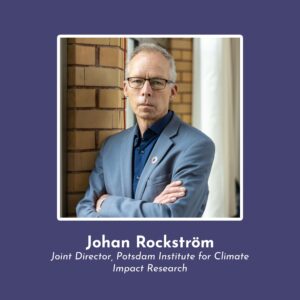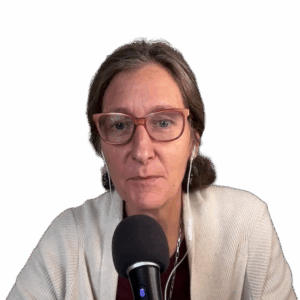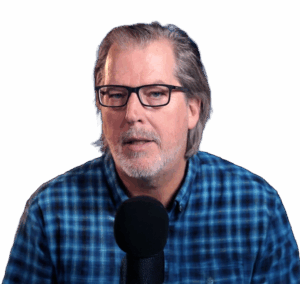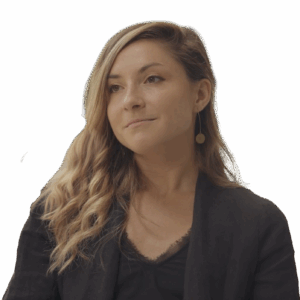
Show Summary
While the mainstream conversation about our planet’s future is heavily dominated by the topic of climate change, there are other systems which are just as critical to consider when thinking about the health and livability of our world. Just like climate change, each of these systems has its own limits within which humanity and the biosphere can continue to develop and thrive for generations to come. However, each also has a critical tipping point – known as a Planetary Boundary – past which Earth’s systems may no longer be able to self-regulate or remain the comfortable and predictable home in which we’ve spent our entire history as a species.
In this episode, Nate speaks with environmental scientist Johan Rockström to unpack his team’s work on Planetary Boundaries and the pressure that humanity is putting on them.
How do these critical systems work to regulate the stability and resilience of the biosphere, and how do we measure their health and tipping points? What are we risking as we continue on our path towards pushing each of these interdependent systems past the point where they can continue to function? Is it possible to reverse the damage that consumptive, growth-based systems have already done to our planetary home and prevent further destruction?
About Johan Rockström
Johan Rockström is an internationally recognized scientist on global sustainability issues. He led the development of the Planetary Boundaries framework for human development in the current era of rapid global change. He is a leading scientist on global water resources, with more than 25 years experience in applied water research in tropical regions, and more than 150 research publications in fields ranging from applied land and water management to global sustainability.
In addition to his research endeavors, which has been widely used to guide policy, Rockström is active as a consultant for several governments and business networks. He also acts as an advisor for sustainable development issues at international meetings including the World Economic Forum, the United Nations Sustainable Development Solutions Network (SDSN) and the United Nations Framework Convention on Climate Change Conferences (UNFCCC). Professor Rockström chairs the advisory board for the EAT Foundation and is a member of the Earth League and has been appointed as chair of the Earth Commission.
In French, we have a motto that says that a simple drawing is often better than a long explanation. Jean-Marc Jancovici Carbone 4 President
That’s very understandable because with left atmosphere thinking, one of the problems is that you see everything as a series of problems that must have solutions. Iain McGilchrist Neuroscientist and Philosopher
We can’t have hundreds and hundreds of real relationships that are healthy because that requires time and effort and full attention and awareness of being in real relationship and conversation with the other human. Nate Hagens Director of ISEOF
This is the crux of the whole problem. Individual parts of nature are more valuable than the biocomplexity of nature. Thomas Crowther Founder Restor
Show Notes & Links to Learn More
Download transcript00:00 – Johan Rockström Works + Info, Potsdam Institute, Planetary Boundaries 2023
02:17 – Levke Caesar + TGS Episode, Stefan Rahmstorf
07:50 – Systems science
08:40 – Stable Holocene
09:13 – Anthropocene, also see: The “Anthropocene”
10:55 – Tipping Points, also see: Exceeding 1.5°C global warming could trigger multiple climate tipping points
14:29 – 6 of the 9 planetary boundaries exceed safe limits (2023)
15:12 – Interglacial planetary state
15:20 – Ice Core Data
16:06 – Homosapiens have lived through two ice ages and two interglacials
16:44 – Human domestication and agriculture developed in the stable holocene
17:54 – Chemical Pollution, endocrine disruptors
18:24 – Quaternary Period
19:15 – The planet as we know it has remained within +2ºC and -6ºC
23:29 – Global Commons
24:02 – Greenland Ice sheet, effects on temperature regulation in Europe
24:32 – Amazon Rainforest, carbon sink vs source
24:58 – Policy opportunities to protect global commons, President of Brazil
26:44 – Ozone layer, chlorofluorocarbons, Montreal Protocol
28:58 – Biodiversity, resilience, nutrient dispersal
29:52 – Nitrogen cycle, Phosphorus cycle
31:02 – Aerosol pollution effects on weather patterns and radiative forcing
34:31 – 30% of the carbon we emit is absorbed by intact nature on land
36:59 – Secretary General António Guterres, Speech on 1.5 Degrees
38:35 – COP30
40:16 – Ecological Overshoot
42:10 – Direct Air Capture
42:23 – Ocean Risks
42:30 – Potsdam Research on AMOC, also see: On the relationship between Atlantic meridional overturning circulation slowdown and global surface warming, TGS Episode on AMOC
44:02 – Net Primary Production
44:12 – Oceanic Net Primary Production
46:35 – Variability in certainty on risk assessments
47:40 – Risk of Amazon Rainforest tipping into a Savanna
48:55 – We’ve cut down 17% of forests
52:08 – John Holdren
54:08 – Bill Gates
55:35 – Paris Climate Agreement
55:36 – World Business Council for Sustainable Development, World Economic Forum
56:36 – Jeremy Grantham + TGS Ep.; Endocrine Disruptors threats to ecology and humanity
58:25 – Zoonotic disease outbreaks, biodiversity mitigates risk of zoonotic pandemics
1:00:37 – Albedo
1:01:55 – Anoxic lakes from nutrient pollution and overfishing
1:03:03 – Liebig’s Law of the Minimum
1:03:37 – Arctic is warming 3x faster than the rest of the planet, 6 of 16 tipping point systems are in the arctic
1:05:20 – AMOC mechanics
1:13:39 – Internalizing externalities, carbon pricing
1:13:48 – EU Carbon prices
1:13:32 – Ottmar Edenhofer
1:14:08 – $100/tonne of carbon
1:14:14 – Coal is more expensive without subsidies than renewables
1:14:32 – COP15 on Biodiversity, agreement to stop expanding our land use, 30 by 30
1:16:16 – LPJ Biosphere model
1:17:56 – Cod fishery collapse in Newfoundland, Baltic Sea collapse
1:18:47 – Precautionary Principle







